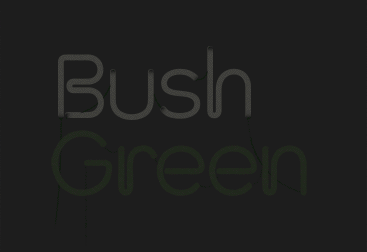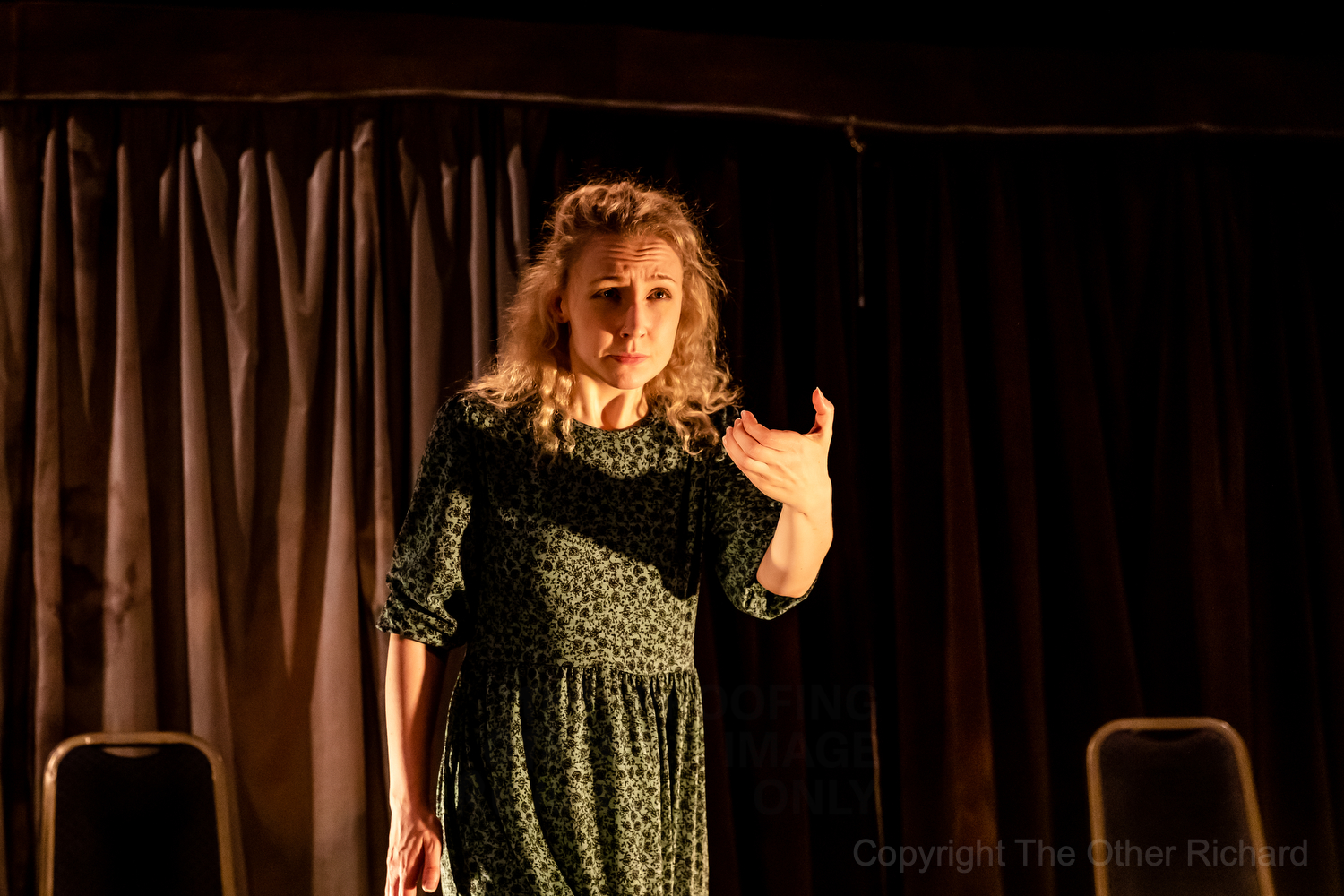Rachael Merry: The BSL access is ‘rooted in the telling of the story’
Fri 10 Jan 2020 |
Our Plays
Zia Ahmed’s tender, funny, lyrical play about finding love and holding onto it with everything you have is keen to cross boundaries. Vital to the three-hander is Rachael Merry, who uses BSL interpretation to convey the poetic beauty of Ahmed’s language . Rachael talks to us about the show, language, and the role of accessibility in performance.
Tell us what I Wanna Be Yours is about.
The play explores the relationship between Ella and Haseeb, and the obstacles that come their way as they navigate societal reaction to their perceived differences. It is a powerful and hugely pertinent story.
How did you decide to work in theatre?
Theatre and performing arts is where I started, having grown up taking part in dance and musical theatre. It was therefore a natural progression to marry my work within the Deaf community with my skills as a performer. I feel incredibly lucky to be working within such a niche area of the industry.
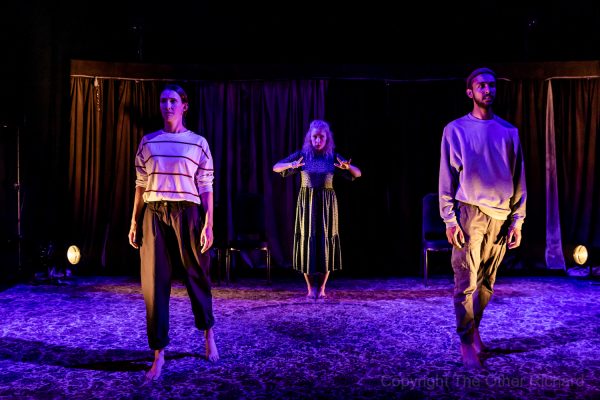
Emily Stott, Rachel Merry and Ragevan Vasan in I Wanna Be Yours. Image by The Other Richard
What attracted you to this role?
From my first reading of the script, I was overwhelmed by the poetic beauty and richness of the language. The story itself is incredibly powerful and one that needs to be told. I am thrilled to be one of the people involved in making this piece accessible to the Deaf community. I was very aware of the challenge it posed, however was really excited by the visual possibilities within the imagery and how they could be shown through BSL.
“It is wonderful to see more and more Deaf actors and professionals working within on and offstage roles.”
Talk us through the creative decision to name your character Rachael – do you feel like you are playing yourself on stage?
In my role as the interpreter within this story; I am myself. It seemed fitting for me to keep my own name as I am just another person receiving this story from Ella and Haseeb along with the audience. I think this decision has allowed my character to be integral to the piece without interrupting their journey.
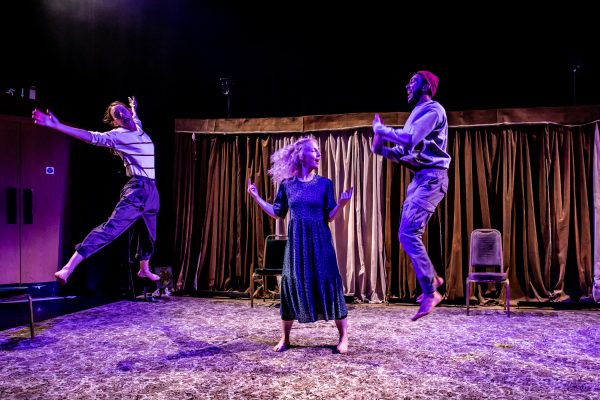
Emily Stott, Rachel Merry, Ragevan Vasan in I Wanna Be Yours by Zia Ahmed, Image by The Other Richard
What was the rehearsal process like?
Incredibly challenging, but also a lot of fun! As a company we have been learning together how the integration may work so in the early stages this involved a lot of play and exploration. Too often, BSL interpretation and access is a last minute thought, added on to an excising piece. It was great to be part of the story from the very beginning and explore how my character and the addition of BSL integration becomes part of the narrative. I worked with two Deaf BSL consultants for both the rehearsal and tech periods which was vital for playing with the language and achieving the correct translation. The play is heavily metaphorical and very dialogue heavy so it was extremely important to have Deaf artists involved at every stage.
Do you have a favourite moment in the play?
I don’t want to give too much away! But for me my favourite moments occur when I can hand over the visual storytelling to Ella and Haseeb and my role takes a back seat as their connection is beautiful to watch. There’s also physical movement and some snippets of dance which are a lot of fun!
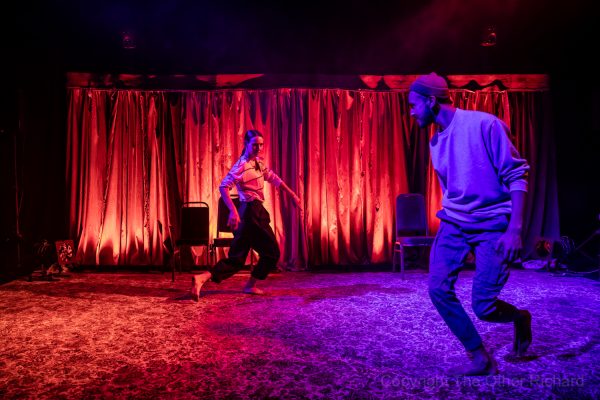
Emily Stott and Ragevan Vasan in I Wanna Be Yours by Zia Ahmed, Image by The Other Richard
Is there anything particularly special about the way BSL is integrated into I Wanna Be Yours?
For me, Anna’s vision, patience and determination for this piece to be a 3-hander has made a huge difference to the connection between the three of us on stage, and I really hope this translates for the Deaf community. Both Em and Ragevan (Ella and Haseeb) have been absolutely incredible to work with and it definitely makes a difference to the final piece. The BSL access is integral to the narrative and is rooted in the telling of the story. I’m really exited to see how it is received and hope we can get as many Deaf audience members as possible to witness this story.
Can you tell us about the work you do outside of theatre?
I am incredibly lucky in that most of my work is connected in some way to theatre and access. As an actor and interpreter I work within a few different areas including workshop facilitation, education and different areas of performance.
What do you think Theatres should be doing in order to reach more D/deaf audiences / BSL users?
The climate is definitely changing and it is wonderful to see more and more Deaf actors and professionals working within on and offstage roles. The more the industry continues to open up to this the better; ensuring access and equality is considered from the start and no longer an afterthought.
I Wanna Be Yours plays in the Studio until 18 Jan.


